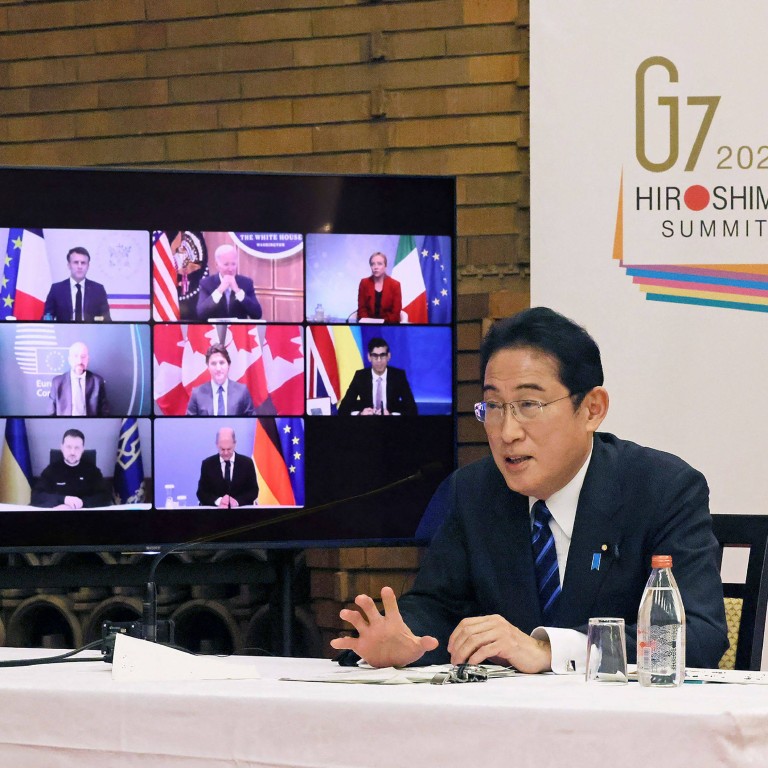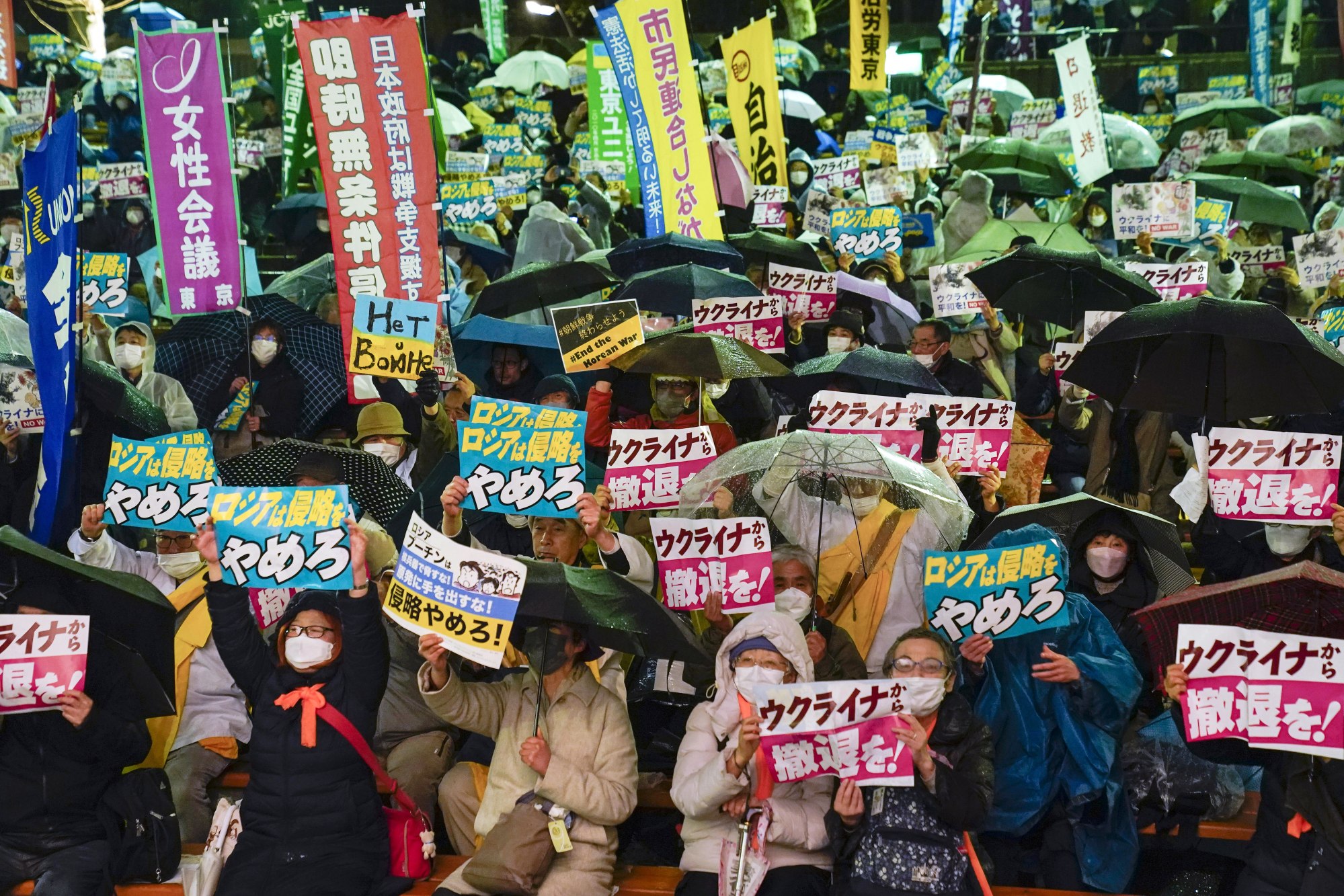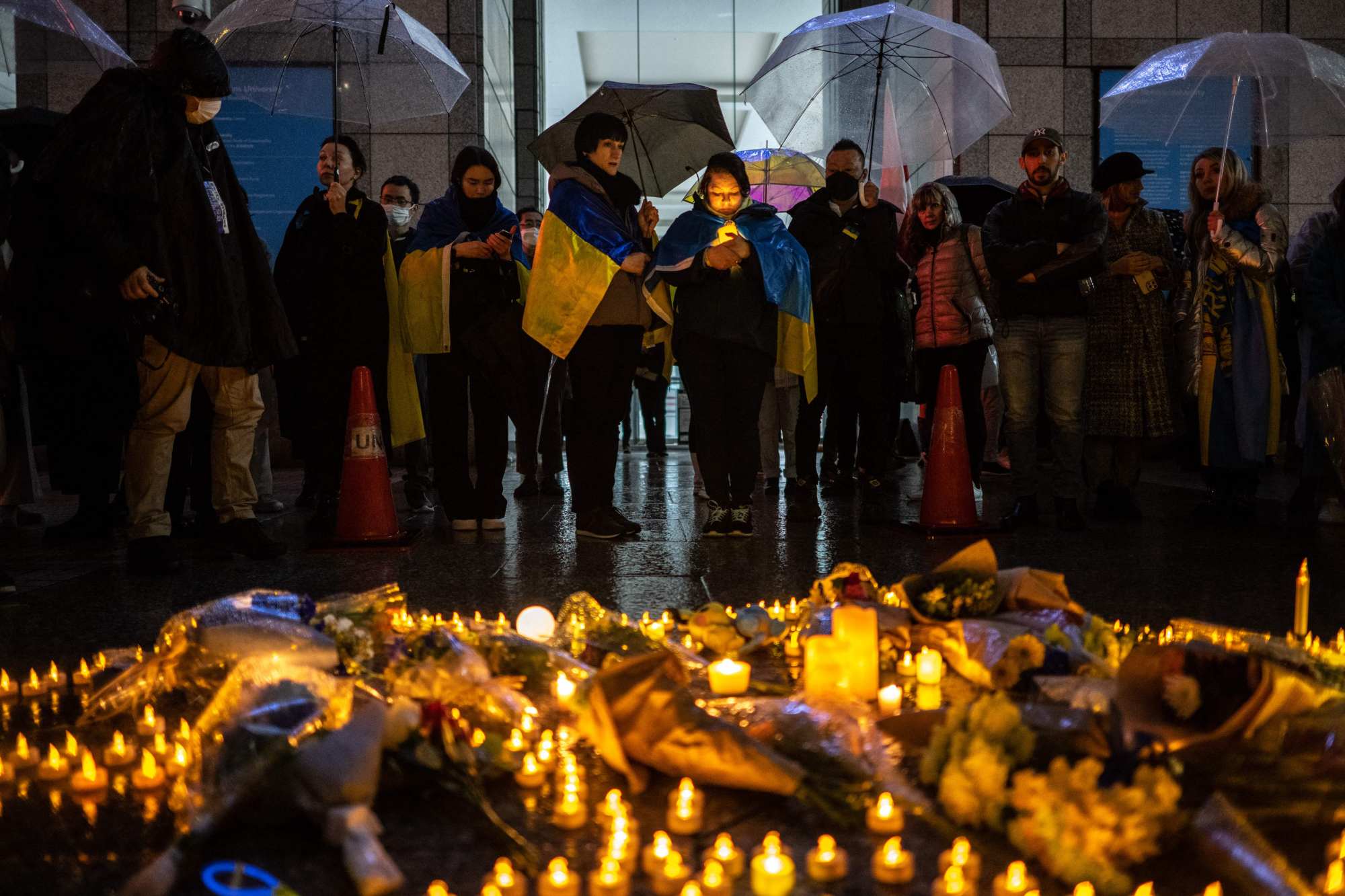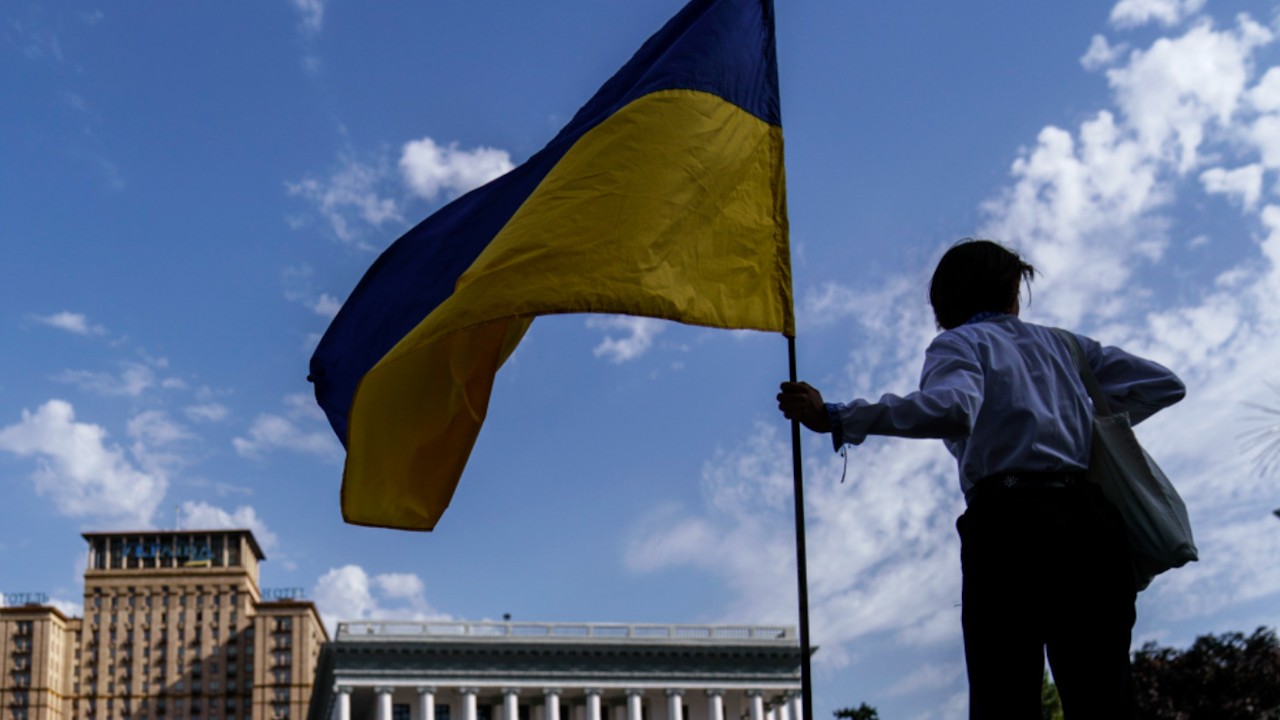
Ukraine war: Japan, other G7 leaders step up Russia sanctions
- Leaders renew commitment to support Ukraine, pledge to prevent Russia from obtaining military equipment and technology
- Japan to impose more sanctions on Russia, including banning export of drones and materials that can be used for military purposes
The leaders renewed their commitment to “intensifying our diplomatic, financial and military support for Ukraine, to increasing the costs to Russia and those supporting its war effort,” and countering the negative impact on the rest of the world, especially the most vulnerable people, they said in a statement, according to the Japanese Foreign Ministry.
The G7 countries also affirmed their coordinated action to “further counter Russia’s capacity to wage its illegal aggression” and pledged to prevent Russia from obtaining military equipment and technology. They also called on other countries to stop providing military support to Russia.
Vigils and a wrecked tank as Ukraine’s allies mark year of war
“We call on third-countries or other international actors who seek to evade or undermine our measures to cease providing material support to Russia’s war, or face severe costs,” the group said.
The statement came as both Moscow and Kyiv seek to restock their forces for intensified fighting in what analysts expect will involve offensives by both sides along the long front lines in Ukraine.
Ukraine’s allies have sought to use sanctions and trade bans to choke off Russia’s ability to acquire more weapons or produce them domestically using imported components.
The statement did not single out any nation as likely to support Russia.
But Iran has supplied attack drones and ammunition for tanks and artillery to Russian forces, and Washington recently warned that Beijing is weighing supplying Moscow with “lethal assistance.”
China has denied those claims.
“In order to absolutely not allow one-sided changes to the status quo, we must firmly carry out support for Ukraine and sanctions against Russia to regain peace and international order based on the rule of law,” Kishida told a news conference before hosting a teleconference with other G7 leaders and Ukrainian President Volodymyr Zelensky.
“G7 serves the core of the international commitment to do so,” he said.
At the summit, Kishida planned to discuss the latest developments in the Russian war on Ukraine and how to support Ukraine’s recovery and affirm G7 solidarity for the war-torn country.
Kishida noted growing concern about China’s potential transfer of lethal weapons to Russia, and said Japan would cooperate with G7 and other countries to send a “clear message” to third countries to stop supplying weapons to Russia.
Kishida also expressed “strong concern” about Russian President Vladimir Putin’s announcement on Tuesday that he was suspending Moscow’s participation in an arms control treaty between Russia and the United States.
“Russia’s nuclear threat is unacceptable, and use of nuclear weapons should never happen,” Kishida, whose electoral constituency is Hiroshima, said at the news conference. “As the world’s only country to have suffered nuclear attacks, the 77-year history of non-nuclear weapons use should not be tarnished by Russia.”

As the world observed the one-year anniversary of Russia’s war on Ukraine, about 1,000 people protested on Friday night in Tokyo’s Hibiya Park, holding banners saying: “Russia, stop invading Ukraine”. Outside the United Nations’ University in Tokyo, demonstrators held a candlelight vigil. And at Zenkoji temple in Nagano in central Japan, about 30 monks prayed for the lives lost in the war.
Top diplomats from Ukraine, the US, Britain, the EU, Lithuania and Sweden at a joint news conference in Tokyo called for solidarity for Ukraine and condemned Russia. US Ambassador to Japan Rahm Emanuel said Putin was wrong to accuse Nato of expanding eastward. He said the newest Nato members expanded west by their free will because the West had “a pull” of freedom, liberty and respect for individuals.
Also on Friday, nuclear and security experts on a panel at the non-profit Sasakawa Peace Foundation released recommendations for the Kishida government to initiate discussions at the G7 Hiroshima summit towards establishing a framework to protect nuclear facilities in conflict areas, in response to Russia’s repeated attacks on the Zaporizhzhia nuclear power plant in Ukraine.
Due to its pacifist principles, Japan’s support for Ukraine has been limited to non-combative military equipment such as helmets, bulletproof vests and drones, and humanitarian supplies including generators.

Kishida is the only G7 leader who has not visited Ukraine. Pressure is mounting at home for Kishida to visit Kyiv before he hosts the G7 summit in Hiroshima. Asked about a possible visit, Kishida said he was “considering” a visit, taking into consideration ways to ensure safety and secrecy, but nothing official had been decided.
Japan has joined the US and European nations in sanctioning Russia over its invasion and providing humanitarian and economic support for Ukraine. Japan was quick to react because it fears the possible impact of a war in East Asia, where China’s military has grown increasingly assertive and has escalated tensions around self-ruled Taiwan, which Beijing claims as its territory.
Kishida at the online G7 also explained Japan’s support for Ukraine. That includes a new $5.5 billion in financial aid, which Kishida unveiled on Monday, bringing total Japanese support for Ukraine to more than $7 billion.
Japan has also accepted more than 2,000 displaced Ukrainians and helped them with housing assistance and support for jobs and education – a rare move for a country that is known for its strict immigration policy.
Additional reporting by Agence France-Presse


